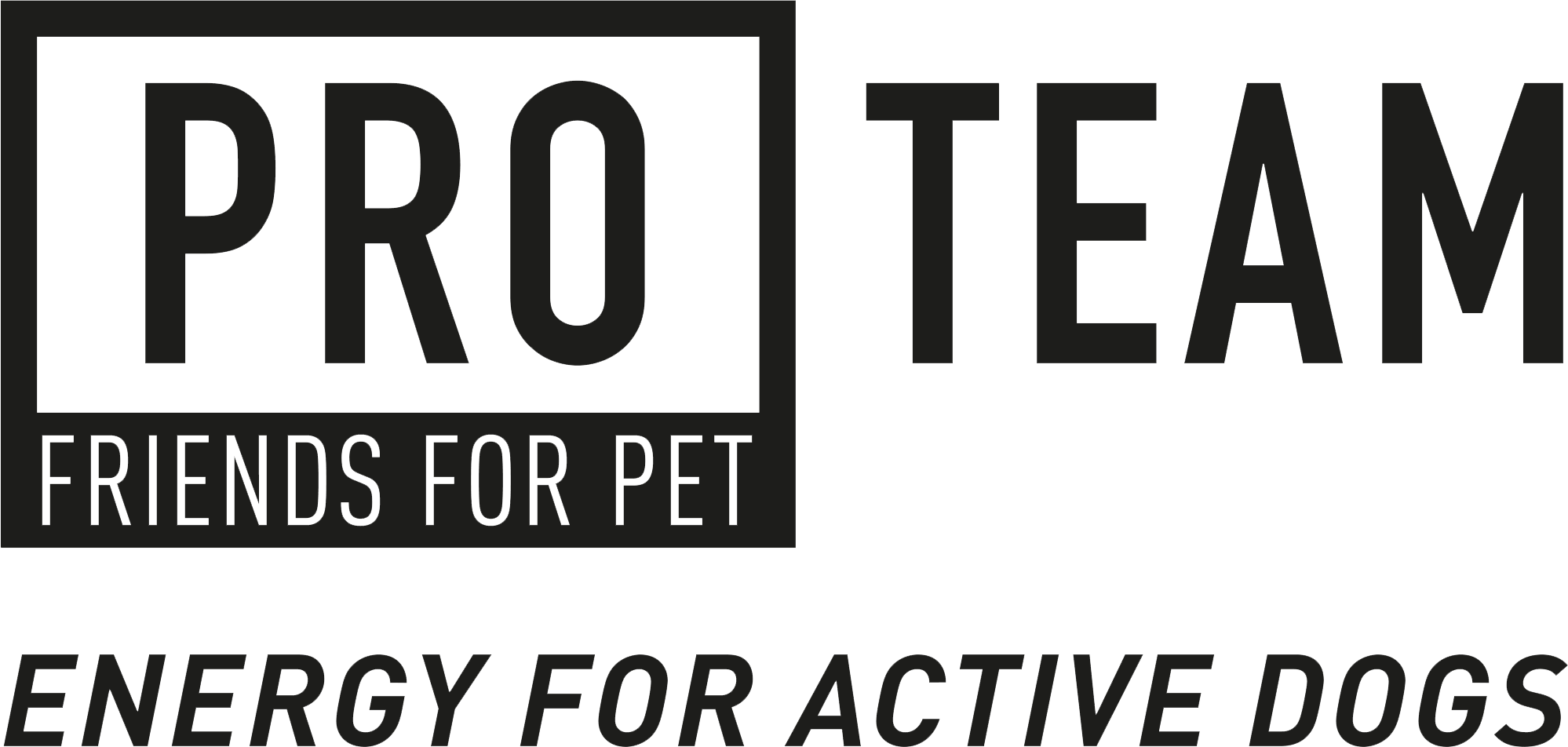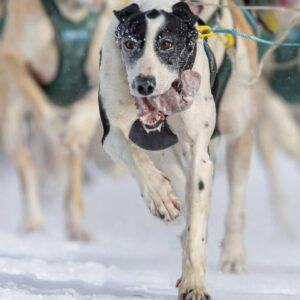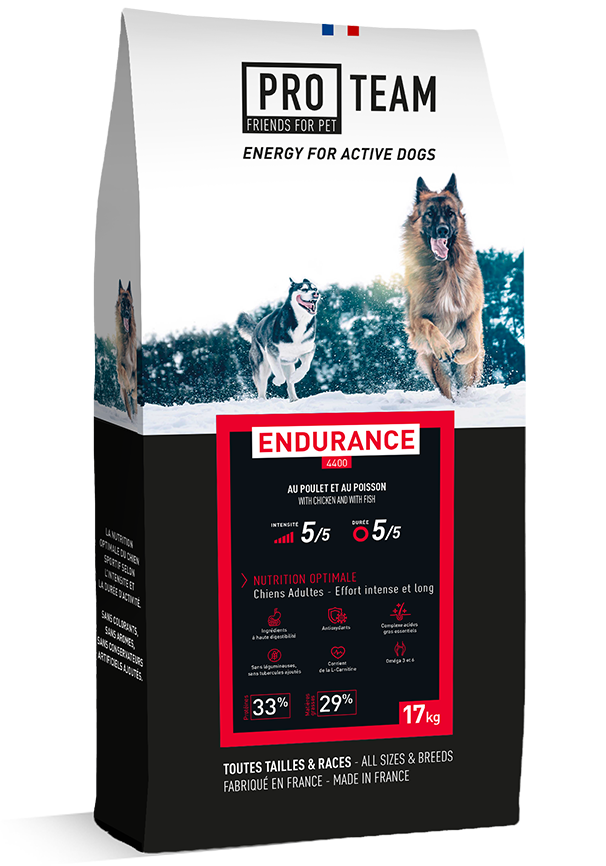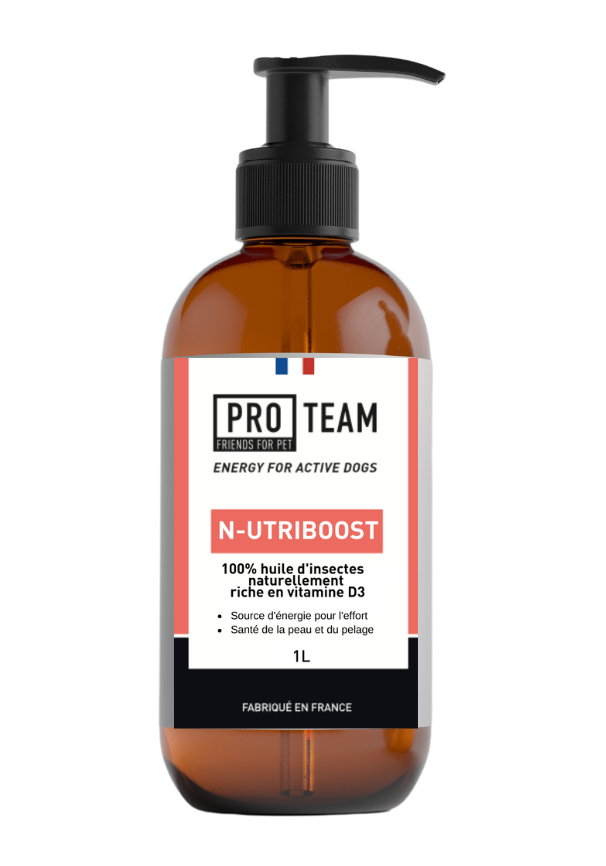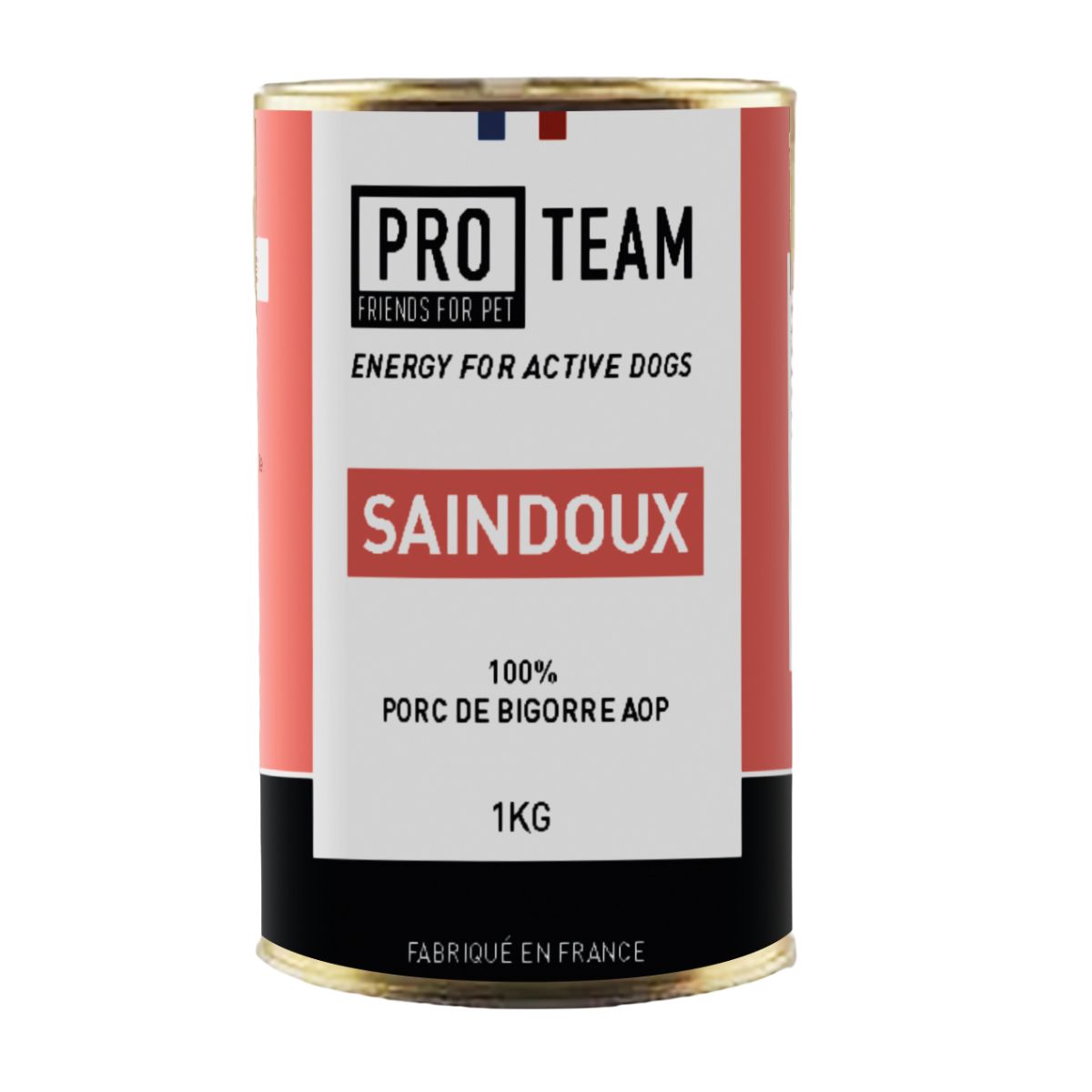Sporting Dogs Digestion: Intense Effort and Gastrointestinal Health
By Aurélie Coste, DVM
Veterinarian with training in Veterinary Manual Medicine (AVETAO), musher and vet of Team Coste Racedog, Mid-Distance World Champion 2023, Winner of La Grande Odyssée Limited 2022-2023. 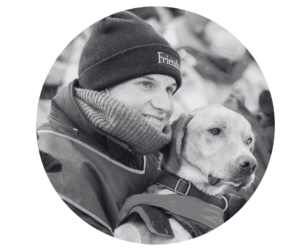
Looking for advice from a veterinarian who has lived with high-performance sporting dogs for nearly 10 years? You’re in the right place. For almost a decade, Aurélie Coste and Team Coste Racedog have lived to the rhythm of training and competition. These dogs, true athletes, require constant care—especially when it comes to sporting dog digestion. Their well-being and physical condition depend on strict management of intestinal transit, hydration, and especially meal timing. Sporting dog digestion is a key factor in maintaining energy levels, preventing digestive disorders, and accelerating recovery.
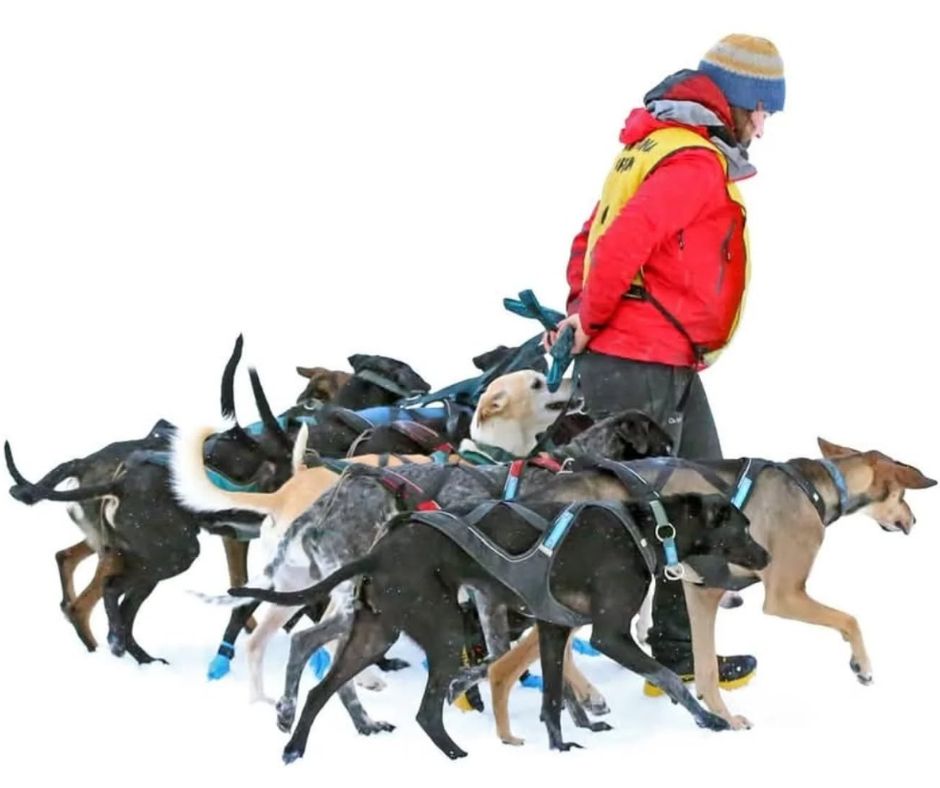
Aurélie Coste – Team Coste Racedog
1. The Key Role of Meal Timing in the Sporting Dog’s Digestion
When a dog undergoes intense training or competition, its body is under pressure. The digestive system, in particular, must be carefully managed to ensure proper nutrition and avoid issues such as diarrhea or gastric torsion. That’s why sporting dog digestion must be supported by strategic meal timing adapted to each phase of effort.
Before exercise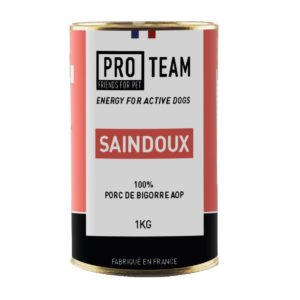
We serve a hydration meal—light and liquid—four hours before the session. It’s easily digestible and helps avoid stomach torsion by ensuring the stomach is empty by the time the dog begins working. The meal should include water, protein, and easily digestible fats such as PRO TEAM SAINDOUX or Greenheart-Premiums chicken powder.
After exercise
We begin with about 20 minutes of active recovery before feeding. A meal given 30 minutes to 1 hour after effort allows for proper absorption, as blood flow shifts back to the intestines after being directed to the muscles. When several intense training sessions follow one another, we recommend 1.5 g/kg of rapidly digestible sugar, such as maltodextrin, within 20 minutes of exercise. This helps replenish glycogen stores and prepares the dog for the next efforts.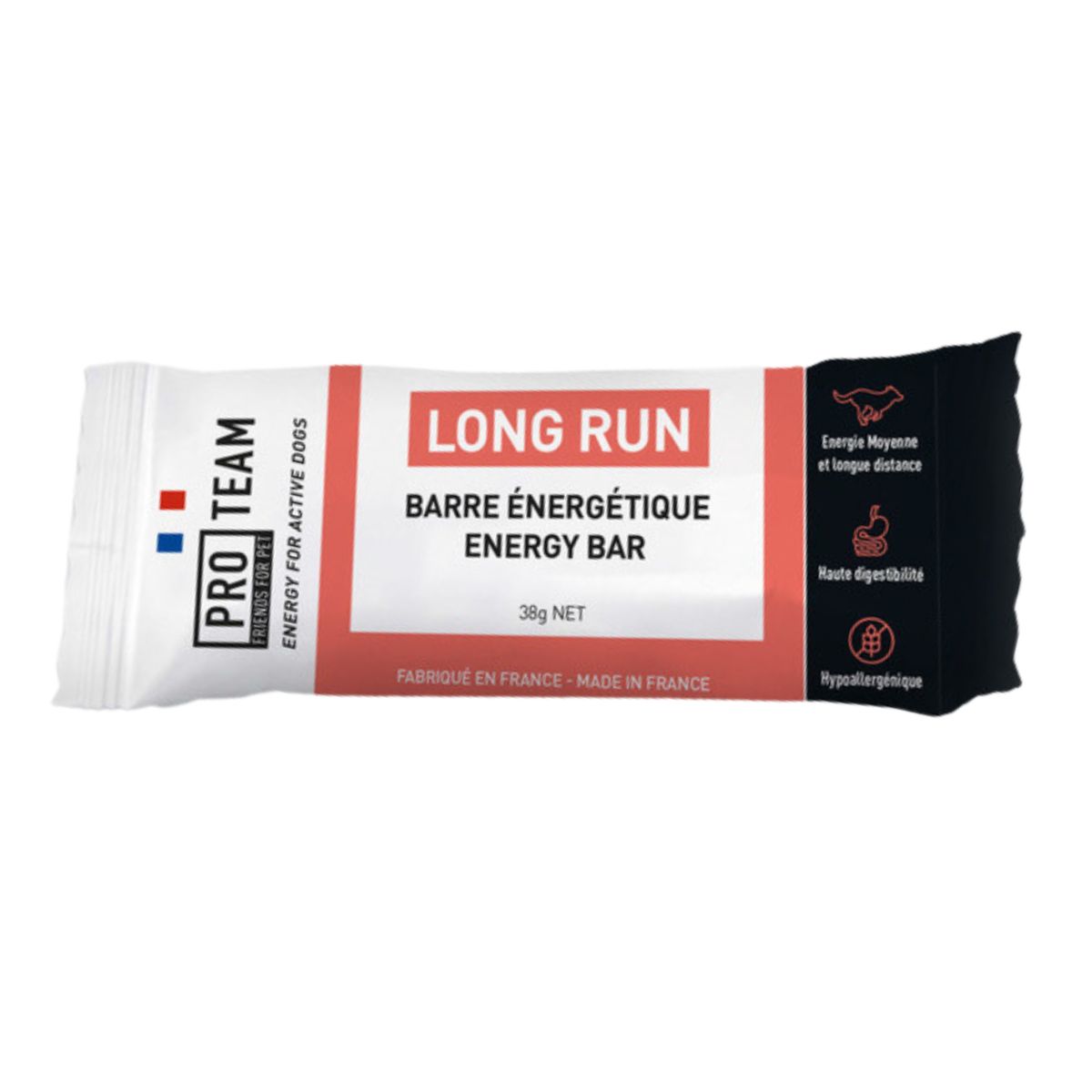
Another useful option is to give a sport-specific energy bar like the PRO TEAM LONG RUN bars. Easy to carry and highly palatable, these bars support performance before a demanding session or boost recovery immediately after, especially during travel or when a hydrated meal isn’t practical. They provide fast and convenient energy while respecting the athlete dog’s needs.
Greenheart Premiums’ Recovery Mix—a highly palatable, water-soluble supplement—is an excellent post-exercise option. It combines rapidly assimilable sugar with NaCl and KCl to replenish lost minerals and prevent muscle soreness. Recovery Mix supports optimal rehydration and faster recovery after intense effort.
2. Meal Splitting: A Powerful Ally for Sporting Dog Digestion
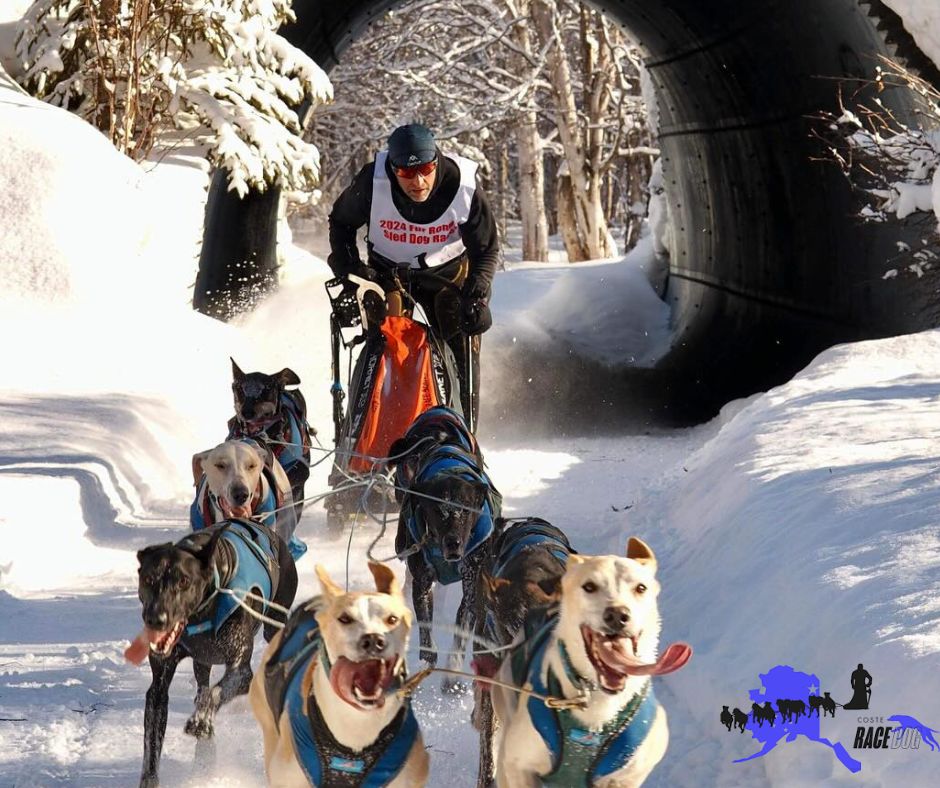 At Team Coste Racedog, the daily ration is split into three to four meals. The main, rich, and complete meal is served right after training and as far as possible from the next session. Lighter intermediate meals provide hydration and nutrients. These are given about seven hours after the main meal, and a final meal occurs four to five hours before the next training. This split feeding prevents digestive overload and promotes better assimilation. This feeding strategy directly supports sporting dog digestion and improves nutrient bioavailability.
At Team Coste Racedog, the daily ration is split into three to four meals. The main, rich, and complete meal is served right after training and as far as possible from the next session. Lighter intermediate meals provide hydration and nutrients. These are given about seven hours after the main meal, and a final meal occurs four to five hours before the next training. This split feeding prevents digestive overload and promotes better assimilation. This feeding strategy directly supports sporting dog digestion and improves nutrient bioavailability.
Main meal: after exercise, rich and complete.
Light intermediate meals every 7 hours to maintain hydration and nutrient intake.
Last meal: 4–5 hours before the next workout to avoid digestive issues.
3. Hydration and Its Impact on Sporting Dog Digestion
Water makes up about 60–70% of a dog’s body weight. It plays a vital role in temperature regulation, digestion, nutrient transport, and waste elimination. Dehydration impairs performance and can lead to serious issues like heatstroke, kidney problems, or electrolyte imbalances.
Signs of dehydration include dry gums, excessive fatigue, heavy panting, sunken eyes, and loss of skin elasticity.
Water also supports muscle recovery by helping flush toxins, rebuild muscle fibers, prevent soreness, and restore physical condition. An indicative formula for water needs is 50 to 100 ml per kg of body weight per day.
To ensure optimal hydration, Team Coste Racedog follows a stable protocol all year round: one meal and two to three hydration sessions per day. In hot weather (over 12°C), they avoid sledding and favor free play or swimming, providing small, regular amounts of water. After effort, they offer small sips of water while walking the dog to promote recovery, followed by a meal. To encourage drinking, they sometimes add meat broth or Greenheart chicken powder to the water.
4. Exercise-Induced Diarrhea and the Consequences for Sporting Dog Digestion
Exercise-induced diarrhea is common in sporting dogs. It’s caused by stress, blood flow redirected to the muscles, and accelerated intestinal transit. It may be temporary, but if not managed, it can weaken the dog and impair performance.
To prevent it, adjust the feeding protocol: the last large meal should be given 20 hours before exertion, followed by light, hydrating meals. Give prebiotics, probiotics, and fiber (such as psyllium) daily. Use smectite when diarrhea occurs. Deworm regularly—every two months during competition season—and analyze stool samples when necessary. Dietary transitions must be gradual, ideally with probiotics for three weeks. Managing stress is also essential. Team Coste Racedog teaches their dogs to stay calm during harnessing to reduce pre-race anxiety.
5. Gastric Torsion in Sporting Dogs: A Danger to Anticipate
Large, athletic breeds are at risk for gastric dilatation-volvulus (GDV), a life-threatening emergency. To prevent it, never feed just before or just after intense effort. Wait until the dog’s heart rate returns to normal. Avoid giving large amounts of water right after exercise, and allow rest after meals.
📍 For more information, read our blog from May 31st, 2024: Gastric Torsion in Sporting Dogs
Conclusion
Living and working with sporting dogs has shown us how essential digestion is to their performance. By applying good meal timing, optimal hydration, and strict dietary management, we can avoid digestive issues and maximize recovery. Focusing on sporting dog digestion helps build resilience, endurance, and long-term health.
Sporting dog digestion is a true lever of performance and well-being. With proper meal scheduling, appropriate hydration, and a rigorous feeding protocol, many common digestive problems can be avoided. With PRO TEAM, you’re offering your companion nutrition designed for excellence and health.
With targeted formulas like ProTeam Endurance 4400 kibble and ProTeam N-utriboost supplements, plus PRO TEAM Long Run bars and PRO TEAM Saindoux, you’re giving your dog the ideal diet to perform and stay healthy.
🐶 With PRO TEAM Nutrition, give your canine athlete food designed for excellence!
🔎 Discover our complete range at www.proteam-nutrition.com
Find the full range of PRO TEAM supplements on our online store: www.supercroquettes.com
Feel free to share your experiences and personal tips. If you have any questions or need more information, don’t hesitate to contact us. You can also follow our updates on Facebook. Thank you for reading this article and see you soon! Special thanks to Aurélie Coste for her time and insights.
🔗 Learn more about Team Coste Racedog and read their story: Team Coste Testimonial on PRO TEAM
